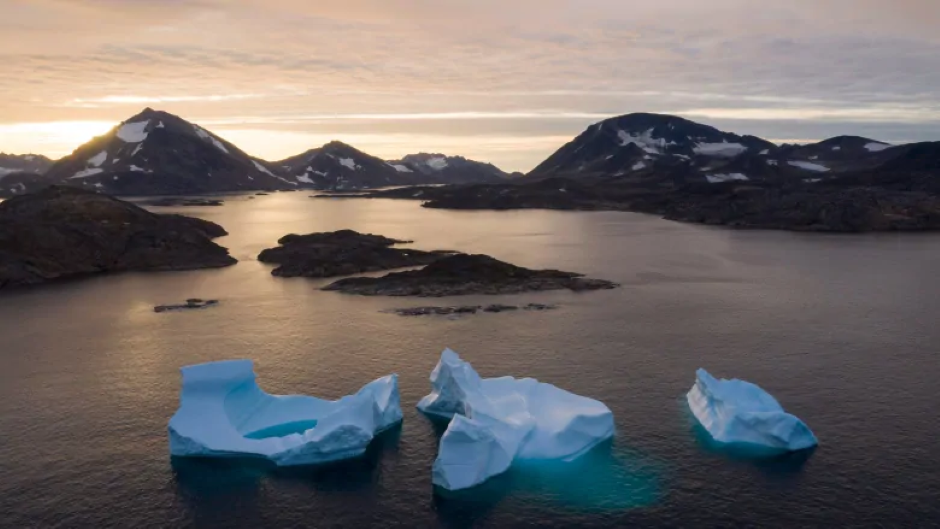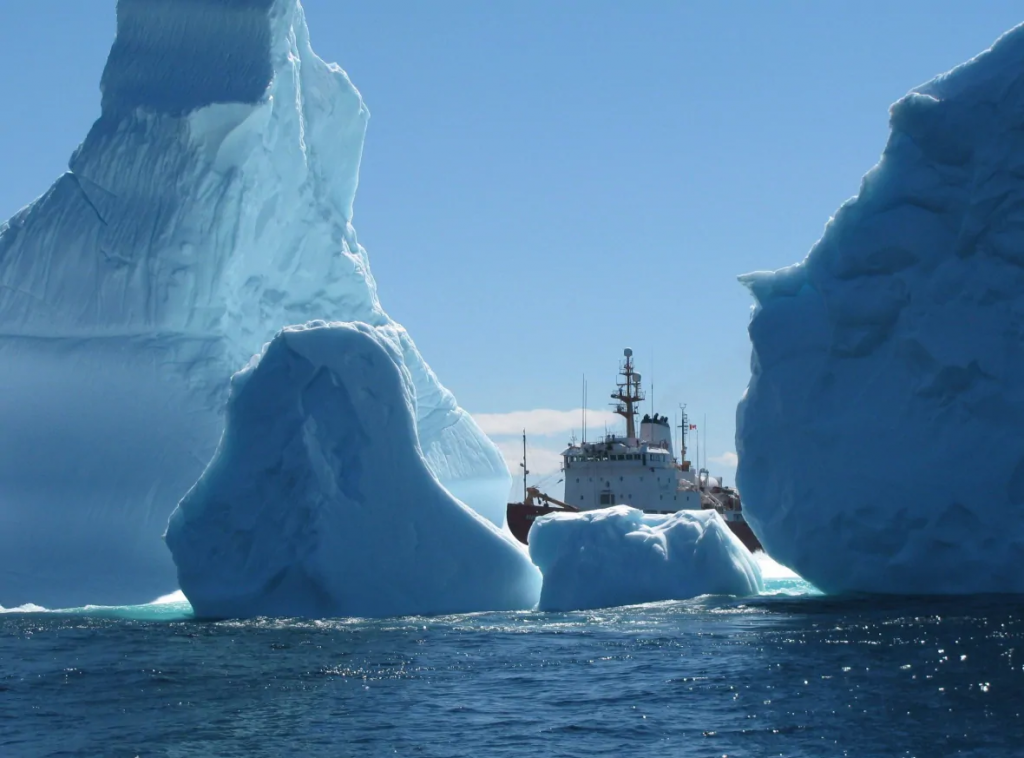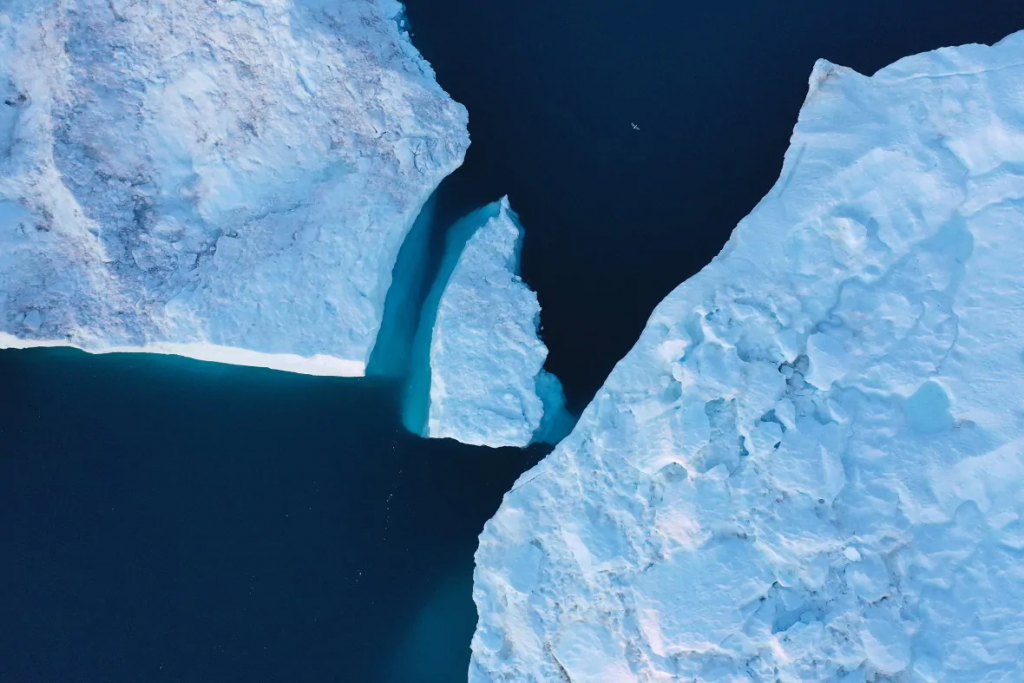Fresh water is pouring into the Arctic Ocean. Climate change is to blame, new study says

The Arctic Ocean is not as salty as it used to be — and now researchers say climate change is to blame. The effects of the changes may already be in motion, too.
Previous research pointed to natural cycles as the cause for an unexplained influx of fresh water on the surface of the world’s northernmost sea in the last few decades.
But a new study, published on July 27 in Geophysical Research Letters, suggests that human caused climate change is what’s driving the increased amounts of freshwater into the Arctic Ocean.
“It’s another worrying sign in that we’re already starting to see clear changes [from] climate change ,” Alexandra Jahn, lead author of the study, told CBC News.
Jahn is an assistant professor in the Department of Atmospheric and Oceanic Sciences and the Institute of Arctic and Alpine Research at the University of Colorado Boulder.
3 feet deep
In the study, the researchers examined the results of multiple simulations run from 1920 to 2100.
Jahn said when the simulations all do the same thing, that’s due to a forced response — in other words, it’s a “clear climate change signal.”
Researchers also ran simulations of different emission scenarios — from “business as usual”, which would result in global warming of over 4 C, to the reduced emissions targets that would result in closer to 2 C overall.
But the effects from the freshening Arctic waters are already in motion, they found. That means those emissions reductions might not make an immediate difference, even if they will reduce the amount of freshwater in the second half of the century.

There has already been a 10 per cent increase in freshwater in the Arctic Ocean — about 2,400 cubic kilometres. That’s equivalent to the amount it would take to cover the entire United States with three feet of water, according to the researchers.
Freshwater in Arctic waters isn’t necessarily bad — or even uncommon. It’s what makes sea ice possible by keeping the cool water on the surface instead of it sinking below less dense, warm water, according to the study.
But this same stabilizing mechanism that makes the Arctic Ocean unique could have disruptive effects in other places as more freshwater leaves the Arctic, Jahn said.
‘What happens in the Arctic doesn’t just stay in the Arctic’
More freshwater could cause changes to ocean currents in the North Atlantic — the currents that help keep winter temperatures in northern Europe more mild, Jahn said.
This change might be felt within the next decade, if not already, she added.
“Within climate context, that’s kind of soon,” Jahn said.
Those colder winter temperatures would actually mitigate the impacts of global warming in northern Europe, she said — at least for a while.
But in the long term, disrupted ocean currents could have negative effects on climate and on the North Atlantic’s ecosystems, the study says.

Changes in ocean circulation might be seen in the rest of the world too, Jahn said.
The research points to the Nares Strait — which runs between Greenland and Canada and is the most northern gateway between the Arctic and more southern oceans — as the first place to see a freshwater export increase attributable to climate change in the next decade.
Other straits farther south and east, including Davis and Fram straits, will be next to show this signal, the researchers say.
“We hear a lot about changes in the Arctic with respect to temperature, how ecosystems and animals are going to be affected,” says Rory Laiho, a co-author and PhD student in atmospheric and oceanic sciences, in a news release accompanying the study.
“But this particular study gives an added perspective on what’s happening physically to the ocean itself, which then can have important implications for ocean circulation and climate.”
Related stories from around the North
Canada: Quebec shipyard sets up an Arctic icebreaking research centre in Eastern Canada, CBC News
Denmark: Denmark, U.S. affirm need to ‘maintain and build situational awareness’ in the Arctic, Eye on the Arctic
Finland: Finland joins other Nordic countries in virtual tourism due to pandemic, Yle News
Iceland: Nordics should aim for common approach to China’s Arctic involvement says report, Eye on the Arctic
Norway: Norway strengthens its Arctic military in new defense plan as security concerns grow in the region, The Independent Barents Observer
Russia: Two Chinese rigs prepare for drilling in Russian Arctic waters, The Independent Barents Observer
Sweden: Sweden’s FM calls for more EU involvement in Arctic as country hosts EU Arctic Forum, Radio Sweden
United States: Appointment of U.S. Arctic coordinator signals more muscular American policy, Radio Canada International



